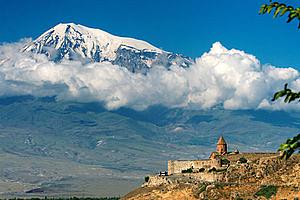Armenia Then and Now: Reexamining Mining in Amulsar
John Harker is a world-renowned conflict resolution, social engagement and international development expert. He was Nelson Mandela’s special advisor and helped him set up South Africa’s National Development Agency. He has served as Executive Director of the Professional Association of Foreign Service Officers, representing Canada’s diplomats and trade commissioners as well as Advisor to the Chair of the International Labour Organization’s (ILO’s) Governing Body. More recently he has served as president of Cape Breton University, where, among other things, he created the Centre on Sustainability in Energy and the Environment, a campus in Cairo and an office in Beijing, in partnership with China’s National Development Research Council (NDRC). He agreed a few years ago to head an Independent Advisory Panel for Amulsar, receiving a per diem payment. Here is a fuller biography: https://developmentcorridors.org/team/john-harker/
As I write, from the comfort and safety of my home on Canada’s Atlantic coast, I can’t help thinking of a far-away land-locked country, Armenia, once a Soviet Republic, always an ancient home-land, and now a country harmed by the stress of war. A war with its neighbor, Azerbaijan.
The supposed reason for war between these two South Caucasus countries was stated more than once by the President of Azerbaijan, Ilham Aliyev. He said that “Armenia and its military forces need to leave our territory.†The territory in question, referred to variously as Nagorno-Karabakh or Artsakh, has been a bone of contention between Azerbaijan and Armenia for a very long time.
And for at least some of that time, recent years anyway, the Aliyev family which “rules†Azerbaijan has looked for ways to avoid the people of the country finding the means to alter the status quo, unbridled Aliyev rule. Perhaps the Nagorno-Karabakh issue was fueled by their fear of democratization, as much as by a sense of commitment to “territorial integrity�
But territorial integrity is a fundamental aspect of our “international system,†and cannot be treated lightly, though nor can another fundamental, the right of people, and peoples, to enjoy universally recognized rights, one being “self-determination.â€
Comments
There are 0 comments on this post








